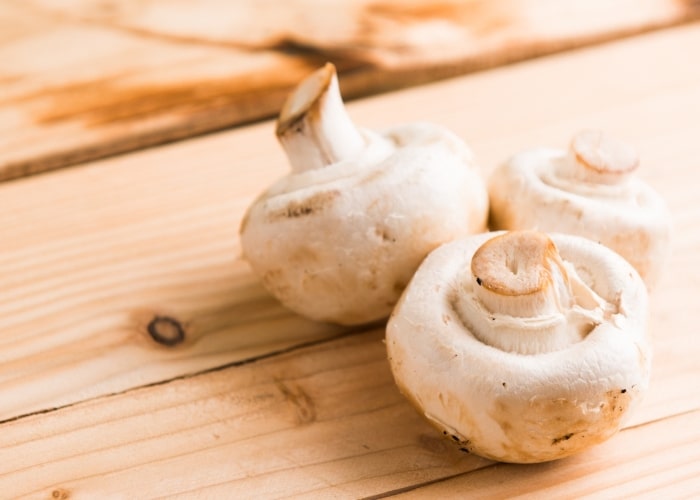
Vitamin D deficiency rates are on the increase in Australia, with nearly one in three Australians being vitamin D deficient. The prevalence is higher in older people, with up to 86 per cent of residents living in aged care homes at high risk of vitamin D deficiency.
Vitamin D is important for maintaining bone health and immune health and vitamin D deficiency is associated with many age-related health conditions including osteoporosis, increased risk of falls and fractures, cognitive decline, hypertension and type 2 diabetes.
A key ingredient that can help tackle vitamin D deficiency is Australian mushrooms, with their ability to satisfy the majority of Australians’ dietary preferences as well as act as a food-first approach to boosting vitamin D intake, says Dr Flávia Fayet-Moore, founder and CEO of FOODiQ Global.
“Mushroom’s (Agaricus bisporus variety) vitamin D content increases at least tenfold with UV exposure, with UV-exposed mushrooms providing 18 micrograms of vitamin D2 per 75 grams, surpassing eggs (7.1 micrograms per 120 grams) and salmon (4.9 micrograms per 100 grams),” she said.
“UV-exposed mushrooms are as effective as supplements in raising and maintaining serum vitamin D levels in deficient individuals, with vitamin D2 remaining stable during cooking and processing.”
“Just four 75-gram servings of UV-exposed button mushrooms per week can help all Australians meet their vitamin D requirements.
“A daily 75-gram serving also boosts selenium intake, especially for vegetarians.”
FoodiQ Global is working with The Shoreline Luxury Retirement Living in Coffs Harbour on a ‘Mushrooms on the Menu’ study to explore the feasibility of adding vitamin D-rich mushrooms to the menu, and the impact on residents’ nutritional intakes, and their overall enjoyment of the menu.
Andrew Wright, Catering Manager at The Shoreline, says he feels more empowered to make decisions on dishes based on the health benefits as well as culinary benefits, after learning more about the nutritional qualities of mushrooms.
“As a qualified chef in residential aged care, it’s important to understand the science behind the ingredients as well as the culinary qualities that I know so well, this way I can include more superfoods and foods that meet residents’ needs,” said Andrew.
“We already had mushrooms on the menu, but now that I know about the increased vitamin D levels of UV-exposed mushrooms and serving sizes, I can make sure I include the right quantities of mushrooms to help residents reach their daily recommended intake of vitamin D.
“We’re glad we can offer our 150 residents helpful nutrition solutions to optimise health and wellbeing. Eating well is so important and vitamin D deficiency is an issue that needs to be addressed, so it’s great to see the mushroom menu being so well received.”
As part of the program, Shoreline residents have been provided with chef and dietitian-crafted meals and meal plans containing at least 75 grams of vitamin D-enriched mushrooms (Agaricus bisporus variety) per person each day for 28 days with nutritional analysis done before, during and after the phase of increased mushroom consumption.
The Shoreline ‘Mushrooms On The Menu’ study is part of a three-year research project with FOODiQ Global managed by the Australian Mushroom Growers Association and funded by Hort Innovation using the mushroom research and development levy and contributions from the Australian Government.
As part of the project, resources have been developed to help food and health industry professionals make the most of Australian mushrooms, available at: australianmushroomgrowers.com. au/food-industry/
Food and health professionals can join the community to receive the latest news, insights and feasibility study results.
Australian Mushroom Growers